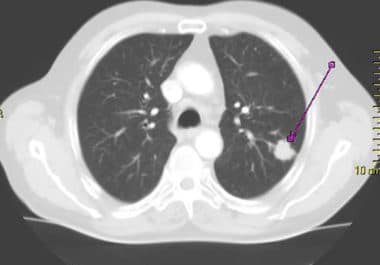
New Guidelines for Radiation Therapy in Pancreatic Cancer
The American Society for Radiation Oncology created guidelines to address controversies over when radiation should be used.


The American Society for Radiation Oncology created guidelines to address controversies over when radiation should be used.

Typically, patients are treated with heparin, an injectable blood thinner, after a blood clot develops, but updated guidelines support use of oral blood thinners.

Some patients may find their doctor recommends cryoablation, a less invasive procedure that uses extreme cold to kill cancer cells, as an alternative to surgery or radiation.

Cancer Today editor-in-chief William G. Nelson, MD, PhD, discusses emerging insights into epigenetic abnormalities in cancer cells.

Screening for lung cancer using low-dose computed tomography (CT) was introduced in the United States in 2013. Recent data from the Centers for Disease Control and Prevention (CDC) showed that only one in eight people for whom lung cancer screening was recommended reported having been screened in the past year, even as long-term results from a large randomized clinical trial provided confirmation that screening reduces lung cancer death rates.

An update on how the spread of coronavirus is impacting cancer care, and more news of the week from Cancer Today.

Experts offer information and cancer centers take precautions in light of the novel coronavirus, and the Food and Drug Administration approves an immunotherapy combination for liver cancer.

The incidence of colorectal cancer – the fourth most common cancer diagnosed in the United States – has been steadily declining since the late 1990s. Despite this decrease, it is estimated that the lifetime risk of developing the disease is roughly one in 20 for those living in the United States. If the cancer is caught early when it is still localized, the five-year relative survival is almost 90 percent. However, if diagnosed after it has metastasized, the five-year relative survival is less than 15 percent.

A report shows that colorectal cancer incidence is decreasing in older adults while simultaneously rising in younger individuals, and more news of the week from Cancer Today.

Using an older method of prostate biopsy together with MRI-targeted biopsy more accurately diagnoses prostate cancer than either method alone, a study finds.